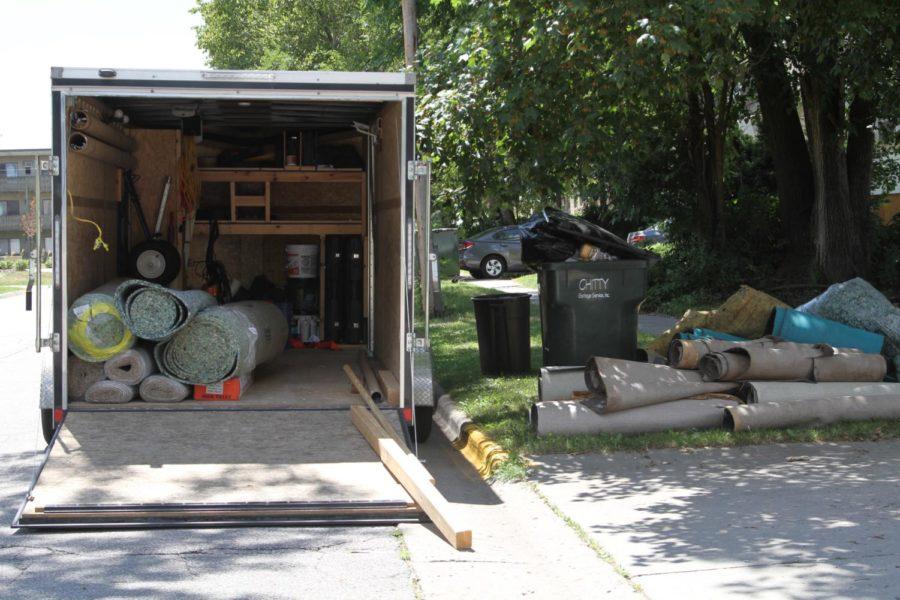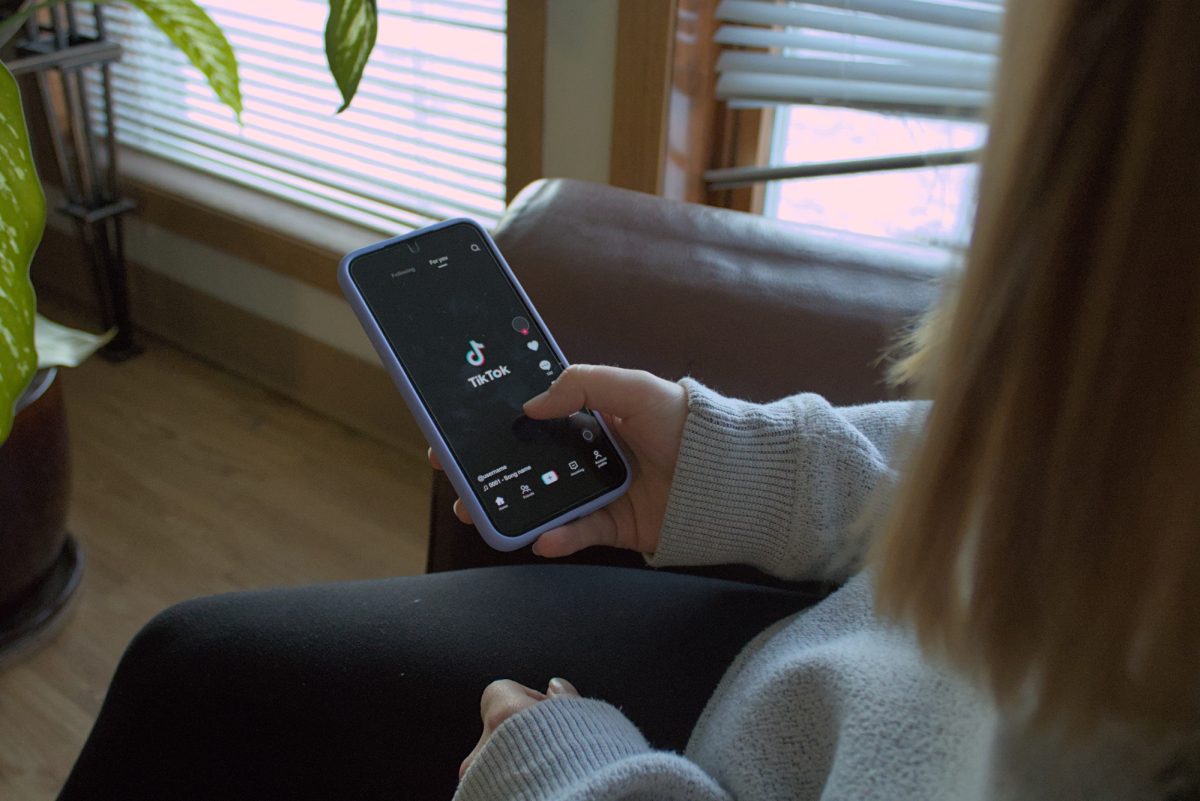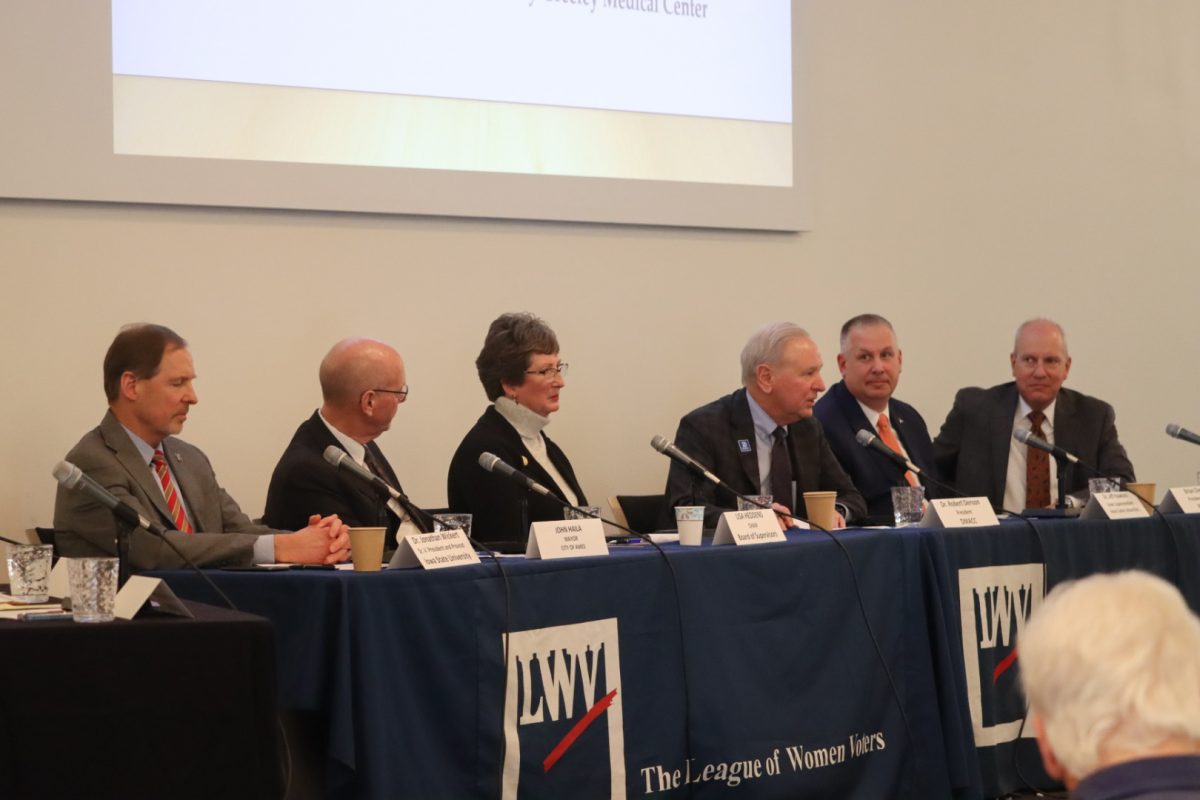Dangerous housing: What to do when options appear limited
November 6, 2017
Tim Burroughs, sophomore in supply chain management, wanted to live somewhere that was cheap and close to campus.
In doing this, however, he was met with problems such as black mold growing on the wall; water coming through the walls, out the carpet; and down to the basement; insects living in the carpet and a strong, distinct odor.
“The owner only contacted us when we have to pay rent,” Burroughs said, recollecting the rental house he lived in last year.
When bothered with a broken toilet, Burroughs was told to “fix it yourself” by his landlord.
“I got sick there more often than I did living anywhere else,” Burroughs said.
Yet the landlord never came to inspect the building during Burroughs’ stay, according to Burroughs.
In the midst of the school year, students are starting to talk about where they will live next year. For most students, finding housing can either be smooth sailing or utter turmoil.
Finding a property listed at an affordable price with a quality location and nice amenities — although ideal — is not the reality for some students.
For some, the issue may begin with the landlord or owner of the rental property.
If so, there are resources that exist that students and tenants can use for filtering quality properties before signing a contract. These include the city’s official code, Rent Smart Ames and Student Legal Services.
“We often forward students to Student Legal Services for lease issues,” said Sara Van Meeteren, building official for the Inspection Division of Ames.
Lease disputes and property management issues make up 25 percent of the traffic that Student Legal Services receives, said Michael Levine, attorney at Student Legal Services.
Issues in property management often tend to stem from seasonal changes. For example, students may face flooding or water damage due to holes in the property during the rainy season. Additionally, students may face excessive heat or cold exposure in summer and winter due to a broken air conditioning and heating systems.
“Read the lease [because] it is very important that students understand their responsibilities from the get-go,” Levine said.
Levine also emphasized the potential dangers of subleasing, particularly if landlords don’t check the property before a sub-leaser’s move-in date.
The danger arises when damage was done to the property under the former resident, but the sub-leaser may be held liable for all damages that occurred under the former tenant.
Students are encouraged to reference the online Renter’s Rules document on Student Legal Services website.
Additionally, renters can find more information from Chapter 562A of the Iowa Code, which is the Uniform Residential Landlord and Tenant Law.
“The number one issue students face with landlords is getting their security deposit back,” Levine said.
Students should also beware of hidden clauses in leases, specifically clauses related to move-out dates.
Levine described the fine print in some contracts that state one must notify landlords a certain number of days before move-out, otherwise the lease will be extended — sometimes by even a few months. This clause may cause renters additional payments and delay getting the security deposit back
The key to solving this issue, Levine said, is to read the whole lease.
“You can never be too familiar with your lease,” Levine said.
When describing the characteristics of a poor landlord or those property owners known for poor property management, Levine said there are not any individual landlords that may cause major problems since different areas face different problems.
This may make it hard for renters to pinpoint the best properties, but Levine urged students to conduct a thorough inspection of a property before signing the lease.
“There’s inspections, and then there are inspections,” Levine said, emphasizing the importance of thoroughly looking over the potential property.
Students are advised to take the time to thoroughly inspect complexes before signing the lease, rather than skimping out on inspecting because they’re worried about inconveniencing the current tenants.
Levine said it is the student’s responsibility to return the property at the end of the lease in the same condition it was in on move-in, minus ordinary wear and tear.
This means students properly documenting the conditions when moving in with photos, notices to the landlord and inspection reports to avoid any fines that may come at the end of the lease.
“Conducting a thorough inspection is an area that I would stress, because it seems like more and more people are finding conditions they did not expect to see when moving in,” Levine said.
Students can set up a meeting with an attorney by phone at 515-294-0978 or stop by their office in Room 0367 of the Memorial Union regarding issues they may be facing with their lease.
“We are focused on the law and how the law can remedy the situation,” Levine said.







